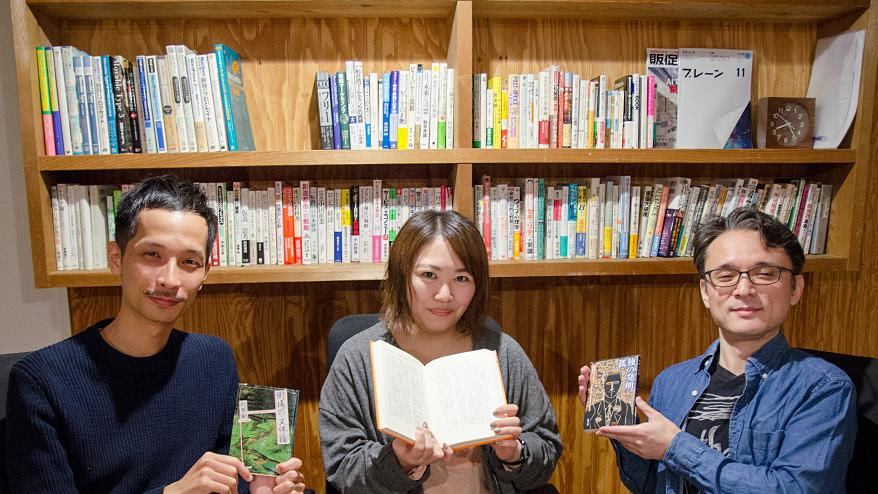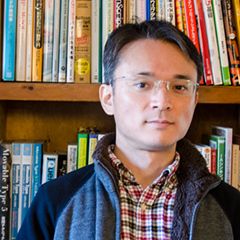Hello. I'm Murakami, a library committee member.
As October draws to an end, the nights have become quite cool. Autumn is the season for food, art, and reading. The theme of this reading group was "Books that have caught my eye lately" and "Books I've recently bought." Members who love books brought along books they would like to read.

As the sun sets and we can hear the chirps of insects in the office, tonight's reading group begins again with Kamaya banana muffins and tea.
Presentation Time
There will be no reading time this time either (it is assumed that the participants will have read a book). Each participant will be given 5 minutes to introduce a book.
- Is working 3 hours a day okay?
Rutger Bregman (author) "The Road to Slavery: Basic Income and the Three-Hour Workday" (reviewed by Yako Inui) - Portrait of the invisible man: the sadness of Paul Auster's The invention of solitude (reviewed by Isamu Murakami)
- Respect for the reader creates a text that conveys meaning. Written by Itsuki Uchida, "Street Style Theory" (reviewed by Keisuke Haga)
Is working 3 hours a day okay?
"A Path to No Slavery: Winning the Competition with AI: Basic Income and Three-Hour Work Days" (reviewed by Yako Inui)
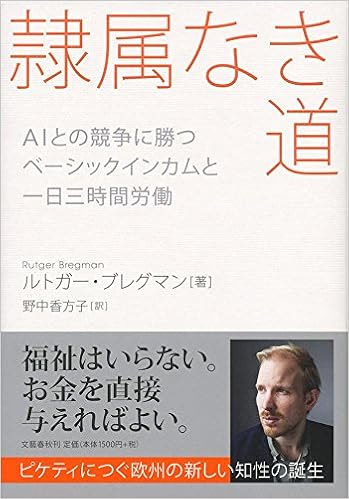
Rutger Bregman (author) "The Road to Slavery: Basic Income and the Three-Hour Workday to Win the Race against AI" Bungeishunju (May 25, 2017) ( Amazon )
 Dry
DryActually, I've brought five books with me today that I'd like to recommend (laughs). I'd like to present one in particular, "A Road Without Slavery: Basic Income and a Three-Hour Workday: Winning the Race Against AI."
The author is a Dutch historian and journalist. In this day and age when AI is developing, humans can no longer compete with AI. So what should we do in the future? From this perspective, he advocates handing out money to people for free, limiting work weeks to 15 hours, and opening borders.
Simply put, basic income is the idea of giving everyone a flat rate of money in exchange for eliminating social systems such as welfare. At first, I thought, "Isn't it impossible to work three hours a day?", but as I read, I started to think, "It seems possible...". There are two chapters left, but I think I'll be convinced when I finish reading to the end (laughs).
It's difficult to read because it discusses a variety of social issues such as working styles, social security, GDP, and inequality, but there is a summary at the end of each chapter, so I think it's interesting to just read this part.
Personally, I think a three-hour workday would be pretty fun. I'd like to keep an eye on this news if it comes out.

 Haga
HagaWhat would you do in a 3-hour workday? It's true that AI is getting a lot of attention and it's said that many jobs will disappear.
 Dry
DryI'd like everyone to try it at least once. There's no restriction on working, so if you want to work more, you can work more than 3 hours. For example, I think it would be more meaningful to spend time doing what you want to do, like going to school.
 Haga
HagaIt seems like the gap between people who want to be lazy and those who don't will widen.
 Dry
DrySome people say that if you give everyone basic income, the poor will waste it, but in reality, the poorer they are, the more they know what they should spend their money on, so they tend to use it wisely.
 Murakami
MurakamiI think Switzerland was debating whether to introduce it or not...I would be a little scared if it were to be introduced in my lifetime.
The sadness of a portrait of an invisible man
"The Invention of Solitude" (introduced by Isamu Murakami)
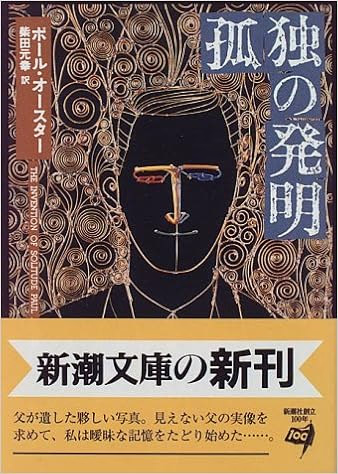
Paul Auster (author) "The Invention of Solitude" Shincho Bunko (March 28, 1996) ( Amazon )
 Murakami
MurakamiI bought "The Invention of Solitude" by Paul Auster along with "The Manners of a Man" by Shotaro Ikenami, which was previously introduced. It is an early novel written before Auster gained serious attention with his New York trilogy and other works. The work is divided into two parts, and I have just finished the first part, "Portrait of an Invisible Man," and I continued reading while thinking how much I liked it.
The main character is the author himself, and the story begins with him receiving the news that his father has passed away. As he goes back to his father's house, sorts through his belongings and reminisces about his father, he comes to the realization that he doesn't know anything about him at all.
My father was a man who only interacted with others superficially, always communicating with them through his "created self." Because he was not good at communication, by not showing his true self and making it into a pattern, even my father was able to live without cutting off his connections with others.
There was a passage that described that, and it made me feel very sad, but it also really drew me in...I was hooked. I feel like this is the first time I've really read an Auster novel.
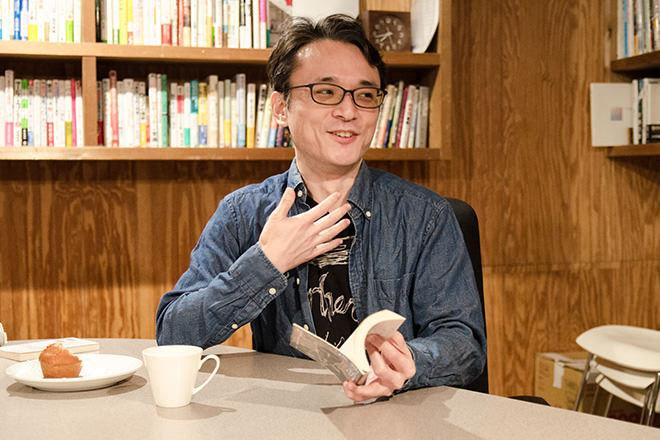
 Dry
DryIt's going to be heartbreaking to read...
 Murakami
MurakamiBecause the story looks at the father as a person through the protagonist, I felt like I was projecting myself onto the father as I read. There is an indescribable sadness to the story.
 Haga
HagaOpinions will likely differ depending on whether you project it onto the protagonist or his father.
 Murakami
MurakamiI'm not very good at communicating, so maybe I feel something similar to my father. I feel like I'm talking, but not really talking...I feel like I don't feel his presence, although not to the same extent as my father.
Respect for the reader creates sentences that convey meaning
"Street Style Theory" (introduced by Keisuke Haga)

Uchida, Itsuki (author) "Street Style Theory" Bunshun Bunko (March 10, 2016) ( Amazon )
-
 Haga
Haga The book I brought with me was Uchida Ikki's "Street Style Theory."
Last year, when I took a web writing course as a second-term student at Kamiyama Monosasu Juku , the instructor, Keiji Tochizawa , recommended this book to me, saying, "I definitely want you to read it," but I never had a chance to pick it up. A while ago, when I wanted to buy the book, I remembered, "Oh, that's it!" and finally bought it.The book is a compilation of Uchida Ikki's "Creative Writing" lectures at Kobe College. It was the last lecture that Uchida gave at the university, and lectures 1 to 14 are listed in order on how to write a piece of writing.
The first lecture was on the theme of "What is love for language?", in which he said, "The essence of writing comes down to respect for the reader." He said that it is important to "speak with emotion and reason."
I've only read the first lesson so far, but I'm looking forward to seeing how the content develops. I write a lot for work, so I hope to use it to improve my creative writing.
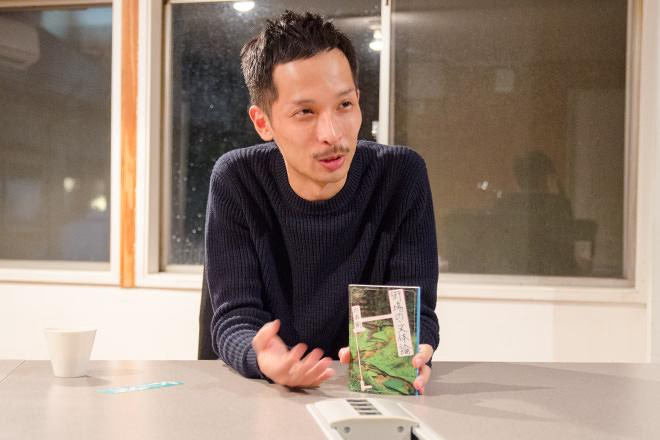
-
 Murakami
Murakami How is it different from regular writing?
-
 Haga
Haga Writing that can be understood by people. In order to write writing that can be truly understood by people, it is important to have an imaginary reader in your mind and write to that person. He says that in order to get someone to read your writing, you need a certain objectivity, that is, to create that "someone" in your mind and write.
-
 Murakami
Murakami How many people are needed?
-
 Haga
Haga Well, maybe not a lot... But it's no good to write it down to your intended readers, thinking "If I write it like this, they'll understand," because it makes you look down on them. What's important is the desire to properly communicate with them.
-
 Dry
Dry It seems quite difficult...
-
 Haga
Haga However, if you just write a document, it is difficult for it to be conveyed to others. I want to write sentences without forgetting to have "respect" for the reader.
After the reading group
A leading historian proposes new ways of working and living, an autobiographical novel that explores the inner world of humans, and a theory on writing that explores what love means to words.
It was a reading group with three outstanding selections from each of the three speakers, perfect for the autumn season of reading.
Well, I wonder what the next topic will be. See you next time!
